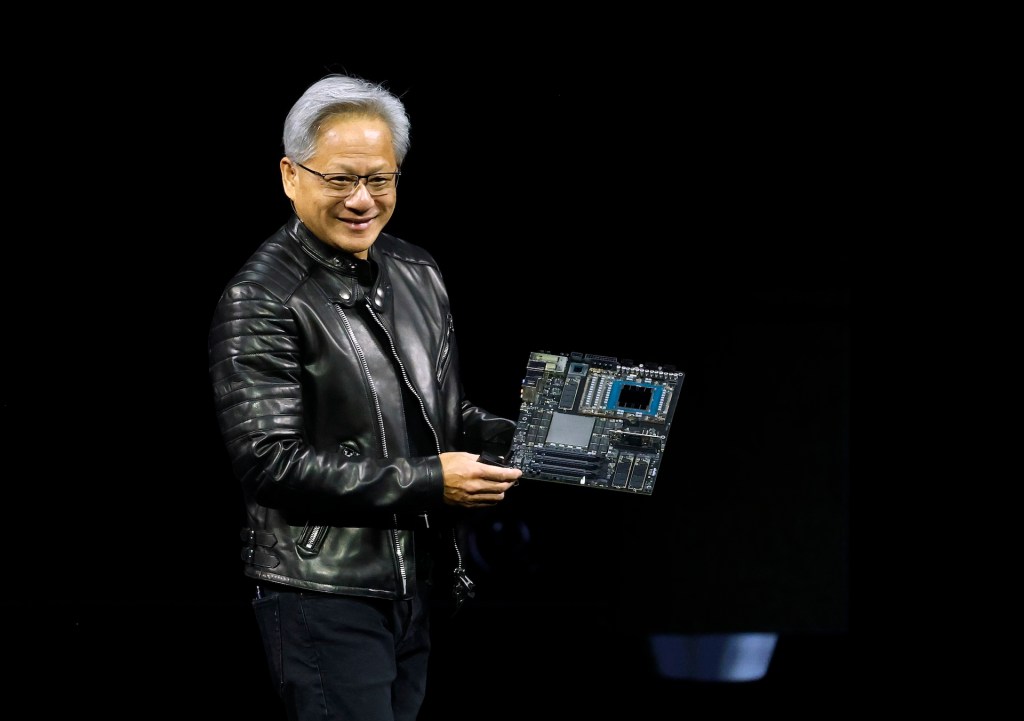In a significant move to curb China’s access to advanced artificial intelligence (AI) technologies, the United States government has mandated that Nvidia obtain a special license to export its H20 AI chips to China. This directive, effective immediately, underscores escalating concerns over national security and the potential military applications of cutting-edge semiconductor technologies.
Background on the H20 Chip
The H20 chip represents Nvidia’s most sophisticated AI hardware available for the Chinese market. Designed to comply with previous U.S. export regulations, the H20 was tailored to meet China’s growing demand for high-performance computing solutions. Its capabilities have made it a critical component for Chinese tech giants such as Tencent, Alibaba, and ByteDance, who have integrated these chips into their AI development initiatives. ([reuters.com](https://www.reuters.com/technology/nvidia-expects-up-55-billion-charge-first-quarter-2025-04-15/?utm_source=openai))
U.S. Government’s Rationale
The U.S. Department of Commerce has expressed apprehension that the H20 chips could be utilized to bolster China’s supercomputing infrastructure, potentially enhancing military capabilities. By imposing an indefinite licensing requirement, the U.S. aims to prevent the diversion of these advanced technologies for purposes that may threaten national security. ([reuters.com](https://www.reuters.com/technology/nvidia-expects-up-55-billion-charge-first-quarter-2025-04-15/?utm_source=openai))
Financial Implications for Nvidia
Nvidia anticipates a substantial financial impact due to the new export restrictions. The company has projected a charge of approximately $5.5 billion in the first quarter of its 2026 fiscal year, ending April 27, 2025. This figure accounts for inventory write-downs, purchase commitments, and reserves associated with the H20 chips. Following the announcement, Nvidia’s stock experienced a decline of around 6% in extended trading sessions. ([reuters.com](https://www.reuters.com/technology/nvidia-expects-up-55-billion-charge-first-quarter-2025-04-15/?utm_source=openai))
Industry-Wide Repercussions
The export controls have had a ripple effect across the technology sector. Advanced Micro Devices (AMD), a key competitor, also faces similar licensing requirements for its AI chips destined for China. Consequently, AMD’s stock price fell by approximately 7%. Asian technology firms have not been immune; Japan’s Advantest and Disco Corp. saw their shares drop by 6.7% and 7.6%, respectively, while Taiwan’s TSMC experienced a 2.4% decline. ([apnews.com](https://apnews.com/article/0e6fbdc1ad8b54d8ecc704393c2a1558?utm_source=openai))
Strategic Responses and Domestic Investments
In response to the heightened export controls, Nvidia has announced plans to invest in domestic manufacturing of AI chips. The company intends to establish large-scale production facilities in Arizona and Texas, aligning with the U.S. government’s push to bolster domestic semiconductor manufacturing. This initiative has been welcomed by President Donald Trump as a significant step toward enhancing U.S. technological self-reliance. ([apnews.com](https://apnews.com/article/0e6fbdc1ad8b54d8ecc704393c2a1558?utm_source=openai))
Broader Context and Future Outlook
The U.S. government’s decision to impose licensing requirements on the export of advanced AI chips is part of a broader strategy to maintain a technological edge over China. By restricting access to critical components like the H20 chip, the U.S. aims to impede China’s progress in AI and supercomputing domains. This move reflects ongoing geopolitical tensions and the strategic importance of semiconductor technologies in national security and economic competitiveness.
As the situation evolves, stakeholders in the technology sector will need to navigate the complexities of international trade regulations and assess the long-term implications of such export controls on global supply chains and innovation trajectories.



